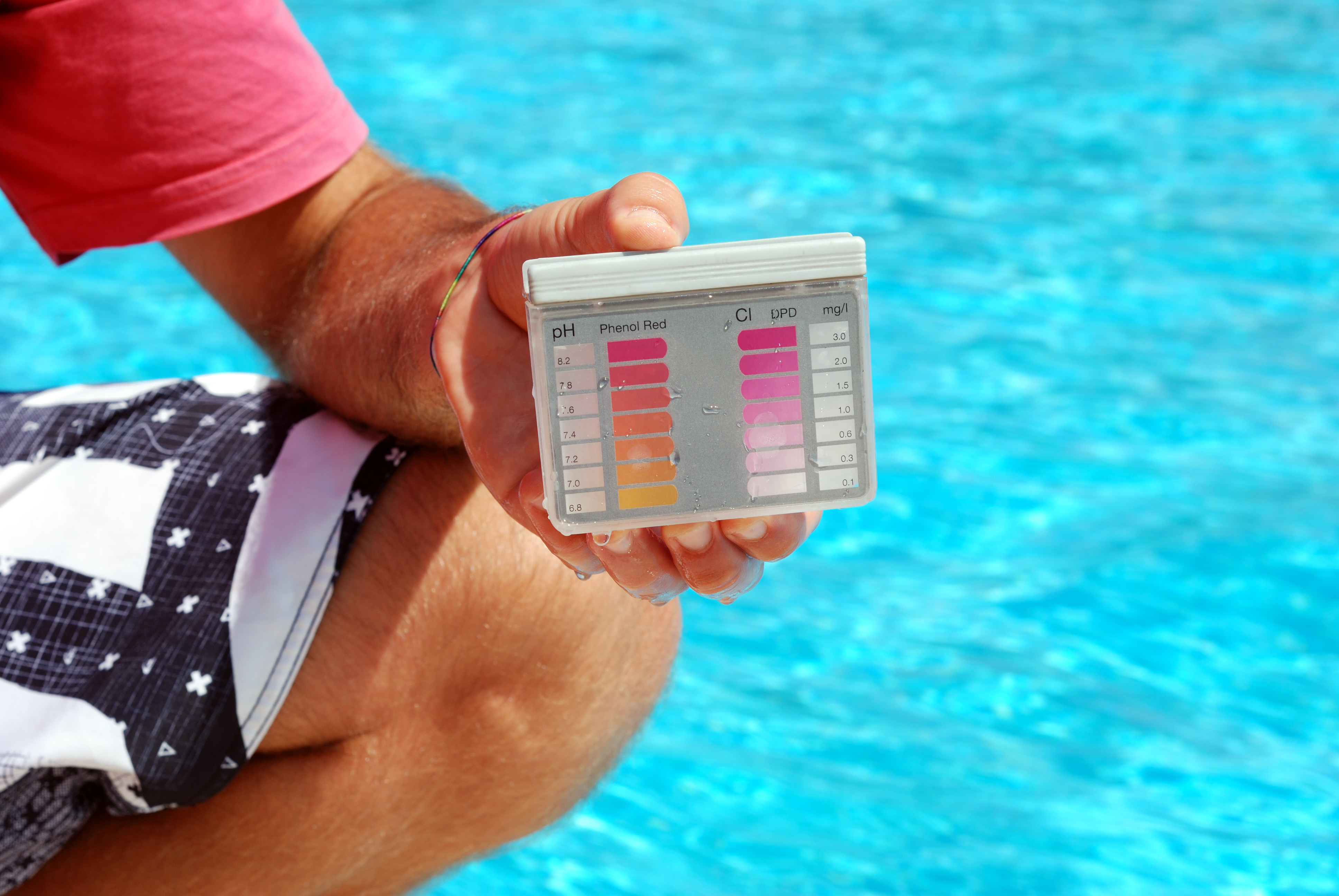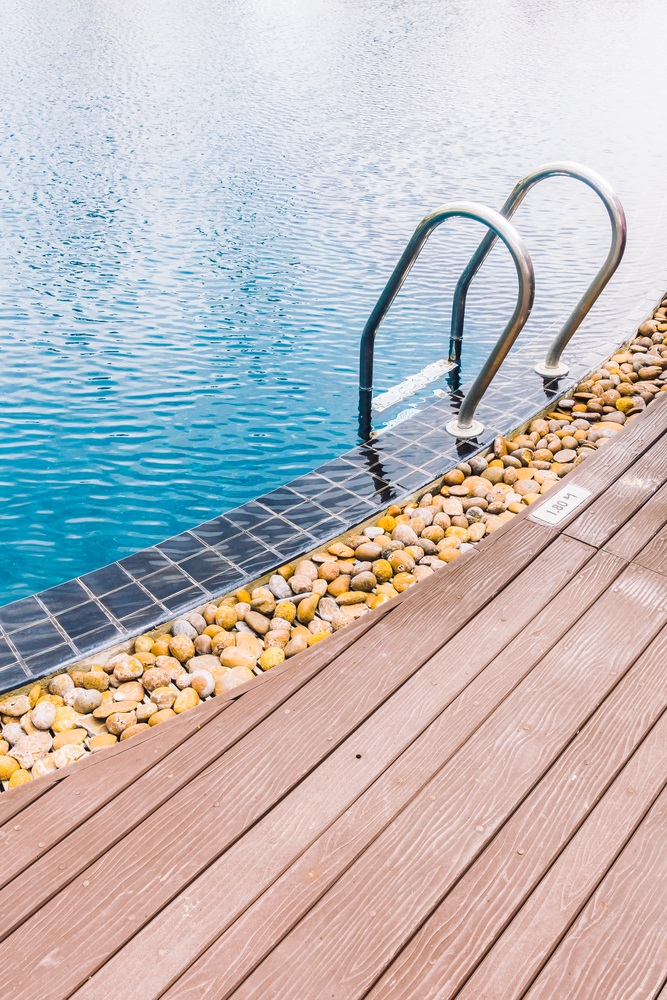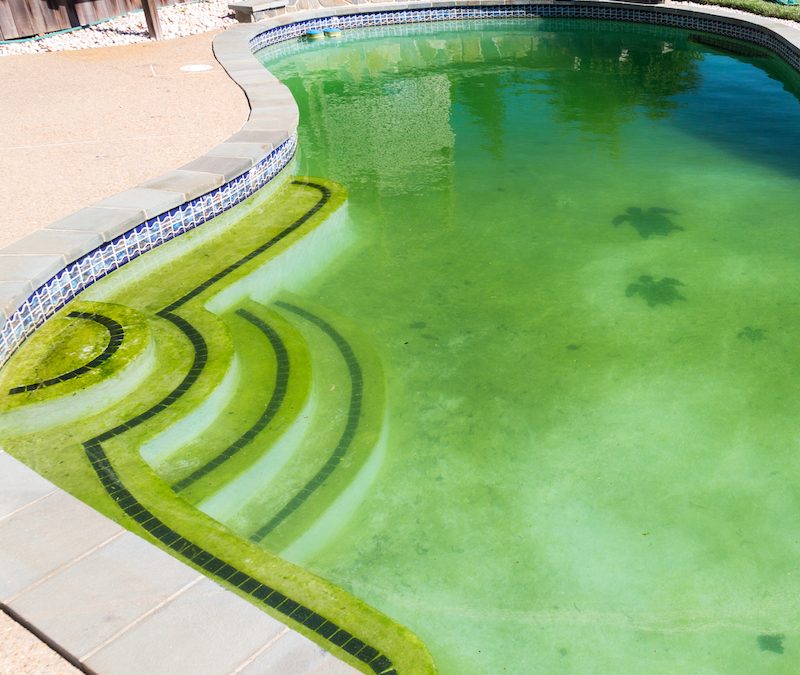When the swimming pool water is green it’s natural to blame algae and most of the time that is the culprit, but there are times when it is your swimming pool filter that is causing or not helping the problem. The swimming pool filter is the heart of the pool.
Your swimming pool relies on the filter to:
- Remove debris
- Remove and filter out contaminants
- Keep micro organisms out of the pool before they can lead to algae growth
The filter keeps the water safe, clean and bacteria-free for your swimming pleasure! Because of this, it’s important that the filter is always operating at peak efficiency.
Is Algae Turning The Pool Water Green Or Is It The Filter?
 When you work with a swimming pool service professional he will inspect your pool filter and the filter pressure when he pays a service visit. When he does this, you can almost rest assured your pool water will be free of bacteria and that your pool filter is performing up to par. However, if the pool filter starts to fail, it can add to frustration, expense and a pool that simply can’t be used.
When you work with a swimming pool service professional he will inspect your pool filter and the filter pressure when he pays a service visit. When he does this, you can almost rest assured your pool water will be free of bacteria and that your pool filter is performing up to par. However, if the pool filter starts to fail, it can add to frustration, expense and a pool that simply can’t be used.
Common pool filter problems
A leaking filter. When it comes to pool filter issues, a leaking filter is one of the most common issues that pool contractors see. Thankfully, it also the easiest and quickest for him to repair. A leaking pool filter will manifest in water puddling around the filter.
If you see this, carefully inspect the filter’s outer shell to see if there are any faults or cracks. If the filter has rusted sections, this could also lead to leaking. If your pool contractor sees these, he will likely recommend a replacement of the entire filter tank. You can certainly patch the cracks or rusted areas, but this is only a short time remedy.
If you’ve determined there are no cracks or rusted areas, your pool contractor will check inside the tank itself. He will turn off the pump, turn off the electricity to the pump and filter, drain it and check the interior.
He will look for debris and will recommend removing and cleaning the filters or replacing the sand. He will also inspect the o-ring and other interior components.
 Sandy water. When you use a sand filter or a diatomaceous earth (DE) filter, you will, on occasion, see sediment in the water in very trace amounts. The reason for this is that the sand and DE are small enough to be pulled back into the water with the force of the filter.
Sandy water. When you use a sand filter or a diatomaceous earth (DE) filter, you will, on occasion, see sediment in the water in very trace amounts. The reason for this is that the sand and DE are small enough to be pulled back into the water with the force of the filter.
If you notice more than trace amounts of DE or sand and if you see it regularly, there is a chance there is a leak in the filter manifold or a fault in the pool filter system pipes. To check this, your pool contractor will turn off all electricity to the filter and inspect all the pipes and connections and look for damaged pipes or misalinged connections.
Short filter cycles. If your pool filter hasn’t been run regularly, it may begin by running in short cycle bursts. This is normal. However, if this continues on a cycle of short bursts of filtering, it could be a sign of one of three issues:
- The filter needs to be cleaned. Algae, bacteria and debris can clog the filter and lead to short cycles.
- It hasn’t been backwashed and is in need of a backwash.
- It’s not the right size filter for your size swimming pool. If you have a small filter to a large pump, the filter will get overworked. Conversely, if you have a filter that is too large for the pool you have, you’re using it and running it unnecessarily.
Low filter pressure. A pool filter pressure gauge should be between 8 and 15 pounds per square inch (PSI). If the pressure is within normal ranges, there could be a leak or a clog in the ssytem.
High filter pressure. If the pressure is too high, it means the water flow is being restricted after it passes through the filter. If the pressure is higher than 15 PSI, it means the filter is dirty and the cartridges need to be replaced and the filter backwashed.
If you notice the pressure gauge is hovering in the 30 PSI or higher, turn the pump down immediately. This high a pressure can damage your swimming pool and can even blow the lids of the pool filter right off. Pressure readings that high typically point to internal filter damage.
No pressure reading. No pressure is as dangerous as high pressure. If the pressure gauge isn’t registering any reading this could mean the gauge is damaged or the filter itself has undergone enough wear and tear that it needs to be replaced. To see if it’s the gauge, itself, tap on the glass to make sure it will move. If it does, your pool contractor can replace the pressure gauge.
Don’t always blame the filter
Yes, we have just laid a lot of blame at the foot of the filter, but there are other reasons for dirty, bacteria-filled water and for leaks and other issues.
- A leak near the filter tank could be coming from the backwash line
- Dirty, cloudy water could also mean the pool water chemistry is off.
- Perhaps the pool needs to be thoroughly cleaned and vacuumed. This is a very good reason for dirty water, too.
If you suspect an issue with your swimming pool that is beyond your DIY skills, call a pool contractor. A swimming pool is too big an investment to skimp on proper care.

